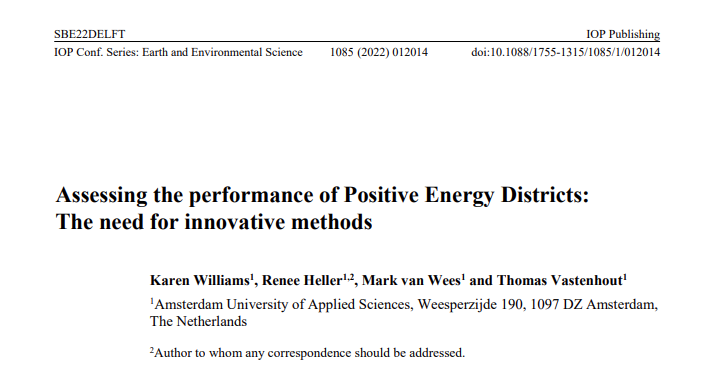In order to achieve low carbon emissions and possibly establish climate neutral cities, Positive Energy Districts (PEDs) hold a lot of potential. Therefore, further research and assessments of their energy perfomance needs to be conducted. The article “Assessing the performance of Positive Energy Districts: The need for innovative methods”, written by ATELIER partners from Amsterdam University of Applied Sciences (AUAS), aims at evaluating and comparing various methods to study the PED energy performance and was published by IOP Science in 2022.
Abstract:
Positive Energy Districts (PEDs) are potential high-impact climate change mitigation actions towards low carbon or even climate neutral cities. This implies that the energy performance and greenhouse gas emissions of PEDs need to be assessed. To this end, an accounting methodology, metrics, supporting (accounting) tools, and reporting are necessary that capture the full energy and climate impact of PEDs. In this paper, we evaluate and compare accounting methods for assessing the energy performance of PEDs and conclude on their use and shortcomings. The hypothesis to be explored is that current accounting practices are based on accounting at a building level and alternative methodologies are needed to capture the full impacts at a district level.
